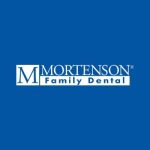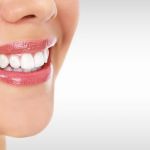How to Maintain Oral Hygiene: Essential Tips for Healthy Teeth and Gums
- Proper Brushing Technique
- Flossing and Interdental Care
- Healthy Diet and Oral Health
- Regular Dental Checkups
- Common Mistakes to Avoid
1. Proper Brushing Technique
Brushing your teeth is the most basic and effective way to maintain oral hygiene, but many people are unaware of the correct technique. To properly clean your teeth, hold your toothbrush at a 45-degree angle to your gums. Use short, gentle strokes rather than scrubbing. Brushing should last at least two minutes, ensuring that all surfaces of your teeth, including the front, back, and chewing surfaces, are cleaned.
Consider using a toothbrush with soft bristles to avoid damaging your gums and enamel. If you have a hard time reaching the back of your mouth, an electric toothbrush with rotating bristles can be a great alternative to improve your brushing efficiency.
2. Flossing and Interdental Care
Brushing alone isn’t enough to maintain oral hygiene. Flossing is an essential practice that removes food particles and plaque buildup between your teeth, areas where a toothbrush often can’t reach. Aim to floss at least once a day, ideally before bedtime, to prevent the accumulation of plaque.
If traditional floss is difficult for you to use, consider alternatives like interdental brushes or floss picks. These options can make it easier to clean between teeth and maintain oral health. Remember, regular flossing helps reduce the risk of gum disease and cavities.
3. Healthy Diet and Oral Health
Your diet plays a significant role in maintaining your oral hygiene. Eating foods rich in vitamins and minerals, such as fruits, vegetables, and dairy, can support healthy teeth and gums. Additionally, limiting sugary foods and drinks helps reduce the risk of tooth decay.
Water is also crucial for oral health. Drinking plenty of water helps rinse away food particles and bacteria, keeping your mouth fresh and hydrated. Avoid sugary drinks like soda and energy drinks, which can contribute to cavities and gum issues.
4. Regular Dental Checkups
No matter how diligent you are with your oral hygiene routine, it’s essential to visit a dentist regularly. Regular checkups allow your dentist to identify early signs of oral health problems, such as cavities, gum disease, or even oral cancer.
Typically, dental checkups should occur at least twice a year. During these visits, your dentist will perform a professional cleaning, remove plaque and tartar buildup, and provide personalized advice to help you maintain optimal oral health.
5. Common Mistakes to Avoid
While most people are aware of the importance of oral hygiene, some common mistakes can undermine your efforts. One of the biggest mistakes is brushing too hard, which can lead to gum recession and enamel wear. Another common error is neglecting your tongue; bacteria can accumulate on the surface of your tongue, leading to bad breath and other oral issues.
Additionally, many people forget to replace their toothbrush regularly. A worn-out toothbrush is less effective at cleaning your teeth, so it's important to change it every three to four months or sooner if the bristles are frayed.







 Mortenson Family Dental4.0 (413 review)
Mortenson Family Dental4.0 (413 review) Nu Smile Aligner5.0 (1 review)
Nu Smile Aligner5.0 (1 review) GK Dental4.0 (175 review)
GK Dental4.0 (175 review) Carol A. Bahnemann, DDS5.0 (2 review)
Carol A. Bahnemann, DDS5.0 (2 review) Foothill Family Dentistry4.0 (41 review)
Foothill Family Dentistry4.0 (41 review) Corbin Dental at Oyster Bay4.0 (189 review)
Corbin Dental at Oyster Bay4.0 (189 review) The Importance of Oral Health Education During Pregnancy for a Healthy Pregnancy
The Importance of Oral Health Education During Pregnancy for a Healthy Pregnancy Best Tips for Brushing Your Teeth Properly for Healthy Gums: Essential Techniques for Oral Health
Best Tips for Brushing Your Teeth Properly for Healthy Gums: Essential Techniques for Oral Health Why Skipping Dental Checkups Can Lead to Bigger Oral Health Problems
Why Skipping Dental Checkups Can Lead to Bigger Oral Health Problems Advantages of Porcelain Dental Restorations
Advantages of Porcelain Dental Restorations How Can Diabetes Cause Tooth and Gum Problems? Preventing and Managing Oral Health Issues
How Can Diabetes Cause Tooth and Gum Problems? Preventing and Managing Oral Health Issues Healthy Habits for Promoting Good Oral Health and Hygiene: Tips for a Healthy Smile
Healthy Habits for Promoting Good Oral Health and Hygiene: Tips for a Healthy Smile